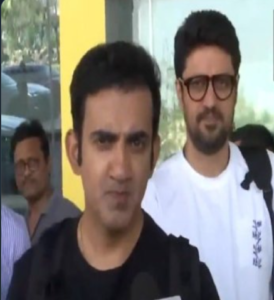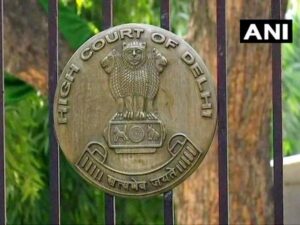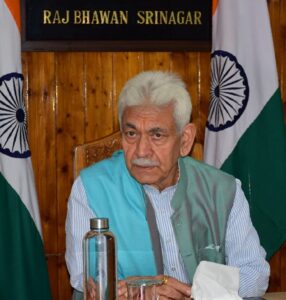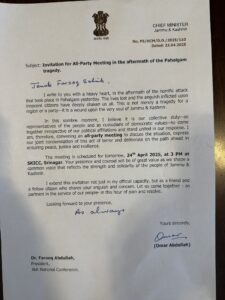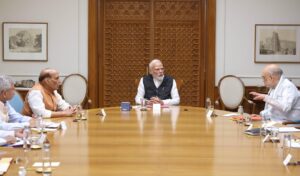India-EU relationship more important than ever; stronger ties can be stabilising factor: Jaishankar
New Delhi, Feb 4 (PTI) External Affairs Minister S Jaishankar on Tuesday said a stronger India-EU relationship can be an “important stabilising factor” in a world that promises to be “so volatile and uncertain”.
Jaishankar also asserted that the relationship between the two sides is more important now than ever before.
Addressing the inaugural session of an annual seminar of IIC-Bruegel here, Jaishankar, without naming any country, said that “in our continent, international law has been disregarded with significant consequences”.
“Even on a question like democracy and military rule, different standards have been applied to our neighbours in the East and our neighbour in the West.
“It is not my case that principles are dispensable or that we must be utterly into realpolitik. But the agenda can no longer be set by some, only to be observed by the rest. This applies to passing judgement on and interfering in the domestic politics of others as well,” the external affairs minister (EAM) said.
Jaishankar further stressed that “we can all feel intuitively that the world is on the cusp of a big change”. “Politics is only the tip of the iceberg. Whether it is energy or connectivity, mobility or technology, major shifts await us,” he said.
Referring to the India-EU Free Trade Agreement (FTA) talks, the EAM said, “I think it is time we get along with it.”
Jaishankar also said that in recent years, there has been a “more intensive engagement” with the European Commission and “we expect that to be even more in the coming days, in fact very soon”.
“Deeper India-EU collaboration is clearly in our mutual benefit,” he said.
Former foreign secretary Shyam Saran, and various diplomats and foreign policy experts, among others, attended the event.
“The world is currently witnessing two major conflicts, and these are often presented as matters of principle. We are told that the very future of the world order is at stake. Yet, record shows how selectively and unevenly these principles have been applied,” Jaishankar said.
“We, in India, are yet to see aggression on our territory vacated after so many decades. Equally, terrorism has been overlooked when convenient,” the minister said.
In his address, Jaishankar also touched upon the aspects of trade and digital technology, climate action, and their interplay with geopolitics.
Today there is much talk about the “world order unravelling”, he said.
“There are North-South contradictions as much as there is an East-West divide. Even these broad characterisations are no longer tenable in an era of sharper nationalism,” the EAM said.
Both economic and political logic of an earlier era needs refreshing, he added.
“A perception grew that the trading system had been gamed for the benefit of a few. It was therefore no surprise — except for those in denial — that there would be a political backlash,” Jaishankar said.
“It was easy to give a cultural twist to these insecurities as well. So, whether we go back to Brexit, look at political happenings in many other nations, including yours, or now considering the return of the Trump administration, let us appreciate that these consequences actually have causes,” he added.
On trade and geopolitics, the foreign minister said, “We are witnessing a serious over-concentration of manufacturing in a limited geography, which has many ramifications.”
The domain of finance has seen similar developments that emanate from the “salience of a few players”, he said.
“For the rest of the world, there are lessons to be learnt. It is no accident that the discourse thereafter has focused intensively on de-risking the international economy,” Jaishankar said.
According to the EAM, the world is truly entering a time of “multipolarity and rebalancing”, and the “sooner we come to terms with this reality, the better for all of us”.
Both India and the EU have common interests and shared values, and there may be some differences, but what binds them is a “sentiment much stronger”, he said.
As the two sides take stock of the changes underway, it is likely that “our meeting points will increase”, he added.
“Moreover, in a world that promises to be so volatile, so uncertain, a stronger India-EU relationship can be an important stabilising factor,” Jaishankar said.
India is certainly cognisant of the greater strategic awakening of Europe in the last few years, which too can serve as a “driver of deeper engagement”, as per the foreign minister.
“We already see that happening, in defence and security and technology cooperation, for example. The bottom line is — India-EU relationship is more important than ever before,” Jaishankar said.
Maritime security and defence cooperation have also increased, collectively or with individual EU members. The Indo-Pacific Strategy and Global Gateway are certainly steps in the right direction, he said.
On the India-Middle East-Europe Economic Corridor, Jaishankar said it has “admittedly been slowed” by the developments in the Middle East since October 2023.
However, some initial steps have indeed commenced between India and the Gulf, the EAM said.
The “game-changing” nature of this enterprise needs to be appreciated, and with India seeking to build land connectivity eastward through South East Asia, it is actually an “Atlantic to Pacific endeavour”, he said.


